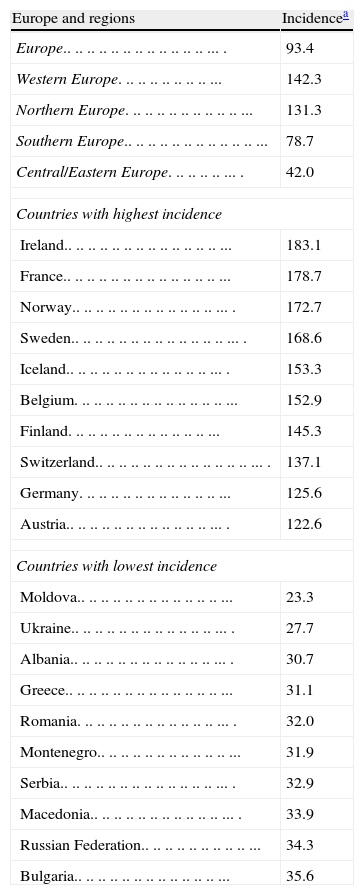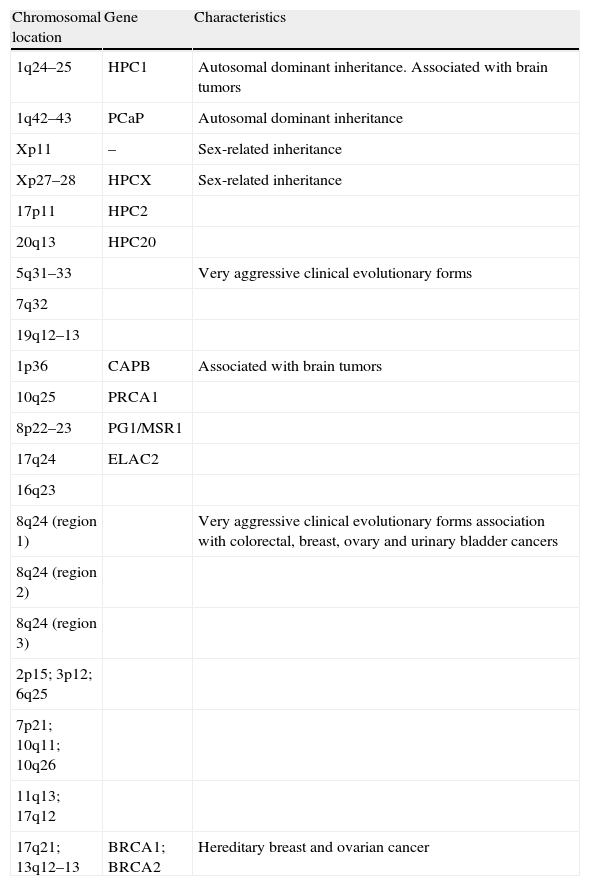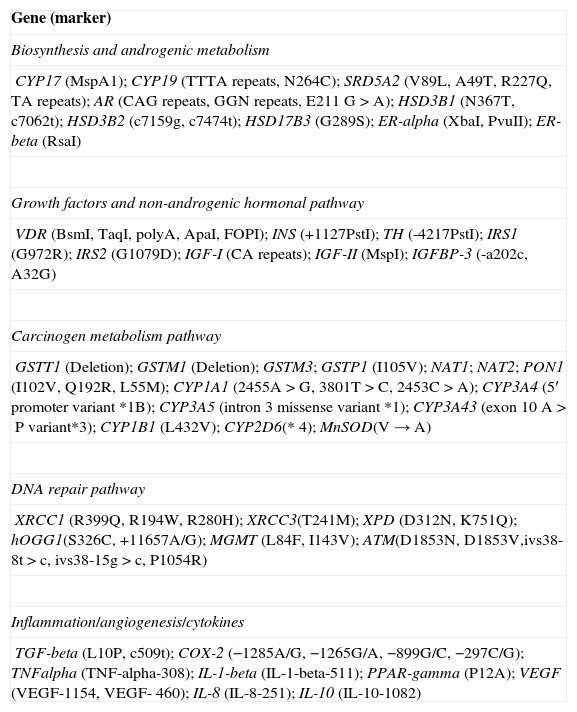The aim of this review is to update and divulge the main constitutional risk factors involved in the etiopathology of prostate cancer.
Materials and methodsBibliographic review of the scientific literature on the constitutional risk factors associated with prostate cancer between 1985 and 2010, obtained from MedLine, CancerLit, Science Citation Index and Embase. The search profiles were Risk Factors, Genetic Factors, Genetic Polymorphisms, Genomics, Etiology, Epidemiology, Hormonal Factors, Endocrinology, Primary Prevention and Prostate Cancer.
ResultsThe principal constitutional risk factors are: age (before the age of 50 years at least 0.7% of these neoplasms are diagnosed and between 75 and 85% are diagnosed after the age of 65 years), ethnic–racial and geographic (African Americans present the highest incidence rates, and the lowest are found in South East Asia), genetic, family and hereditary (family syndromes cover 13–26% of all prostate cancers, of which 5% are of autosomal dominant inheritance), hormonal (it is a hormone-dependent tumor), anthropometric (obesity increases the risk), perinatal, arterial hypertension and type 2 diabetes.
ConclusionsConstitutional risk factors play a very important role in the etiopathology of prostate cancer, especially age, ethnic–racial–geographic factors and genetic–family factors. We cannot know what percentage of these neoplasms are a result of constitutional factors because our knowledge of these factors is currently lacking.
en esta revisión se pretende actualizar y divulgar los principales factores de riesgo constitucionales implicados en la etiopatogenia del cáncer de próstata.
Material y métodosrevisión bibliográfica de la literatura científica acerca de los factores de riesgo constitucionales asociados a cáncer de próstata entre 1985 y 2010, obtenida de MedLine, CancerLit, Science Citation Index y Embase. Los perfiles de búsqueda han sido Risk Factors, Genetic Factors, Genetic Polymorphisms, Genomics, Etiology, Epidemiology, Hormonal Factors, Endocrinology, Primary Prevention y Prostate Cancer.
Resultadoslos principales factores de riesgo constitucionales son: edad (antes de los 50 años se diagnostican menos del 0,7% de estas neoplasias y en mayores de 65 años, entre el 75-85%), étnico-raciales y geográficos (los afroamericanos presentan las mayores tasas de incidencia y las más bajas en el sudeste asiático), genéticos, familiares y hereditarios (los síndromes familiares engloban el 13-26% de todos los cánceres de próstata, de los cuales el 5% se heredan de forma autosómica dominante), hormonales (es un tumor hormonodependiente), antropométricos (la obesidad incrementa el riesgo), perinatales, hipertensión arterial y diabetes tipo 2.
Conclusioneslos factores de riesgo constitucionales desarrollan un papel muy importante en la etiopatogenia del cáncer prostático, especialmente la edad, los factores étnico-raciales-geográficos y los factores genético-familiares. No podemos saber qué porcentaje de estas neoplasias se atribuye a factores constitucionales, porque el conocimiento de dichos factores es actualmente incompleto.
Artículo
Comprando el artículo el PDF del mismo podrá ser descargado
Precio 19,34 €
Comprar ahora









